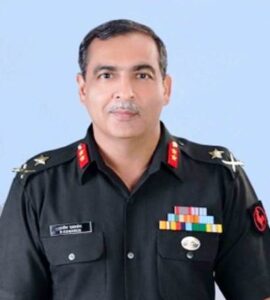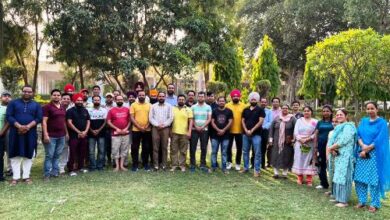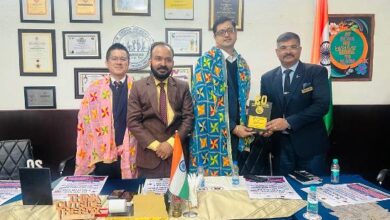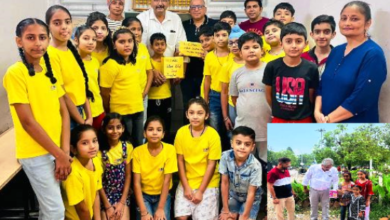THE DIVERSITY DILEMMA by Major General Rajiv Edwards, VSM (Retd)
 THE DIVERSITY DILEMMA
THE DIVERSITY DILEMMA
India is frequently referred to as the ‘Invaders Paradise’. Successive invaders, of which were numerous, colonised India for its enormous wealth and potential. The primary cause of these foreign invasions was the disunity and instability that existed within…of not being able to present a united resistance to the invaders. The British in their turn, mastered the art of exploiting the diversity by its policy of ‘divide and rule’.
India has been the cradle of many cultures, religions, regions, races, castes and languages. At partition, the decision to not go the Pakistan way was a defacto recognition and respect of this reality. The leaders of the time sought to harmonise the great multiplicity of the country by guarantees of freedom and coexistence, which were embodied in the Constitution of the country. It clearly signaled that Indian diversity is about ‘differences and not inequalities’. This is also what differentiated India from Pakistan! Mahatma Gandhi aptly envisioned that, ‘our ability to reach unity in diversity will be the beauty and the test of our civilisation’! Today, that decision stands truly vindicated when we compare the chaotic legacy of Jinnah in the neighbourhood.
The challenge is not the diversity, but the handling of this diversity per se. Every Indian is and must be proud of the positive growth and development of the country in the last 75 years. However, progress of a country is not only measured by economics…it is an aggregate of a large variety of other indices which are intricately linked to the gross happiness index of its diverse population.
It is debatable whether India is a heterogeneous salad bowl or a multi ethnic melting point. Diversity certainly has its challenges, but what makes a society more or less perfect is the same what makes a dish more, or less tasty! The important thing is that every ingredient put in the pot gives out its essence and taste though being assimilated in the pot. If this is not fulfilled, the dish will lose its significance and distinctiveness. Hence, the relevance of a society is contingent on the fact that it does not lose its identity that is holding together various elements, that there is no harmful reaction among different entities and every entity maintains its essence and identity.
Diversity is the soul of the Indian Constitution. The success of a country depends on its ability to get along with a diversity of nations. Therefore, it may be presumed that the more diverse a nation’s population mirrors the world’s, the better positioned perhaps the country is, to interact constructively with the world. And, if one is comfortable with the diversity of different nations, then maintaining harmony with the diversity within, should be that much easier.
India is proud to be the world’s largest democracy and as the Prime Minister recently said, ‘it is in our spirit…it flows in our veins’. Diversity has played a significant role in strengthening democracy in the country. In the words of the former Chief Justice of India, Mr. NV Ramana, ‘….it is only through democracy that our rich culture, heritage, diversity and pluralism can be sustained and strengthened’. The sad fact is that the cultural diversity of India also lends itself to ascriptive identities of religion, caste, region, language etc, which is exploited across the political spectrum. Unbridled sectarianism may manifest in outcomes, which are inherently dangerous to the very soul of democracy…. a variant of the deleterious ‘divide and rule’. Ironically, in our country, some have mastered this art, even better than the British!
Three thousand years before the British had set foot in India, Chandragupta Maurya had unified Indian heterogeneity. This was perhaps the reason, which facilitated the considerable achievements of the time, to be termed as the ‘golden age’ of India. The corner stone was the concept of ‘Yogakshema’, enunciated by the polymath Kautilya in his manual of statecraft, Arthashastra. It dealt with ‘the equal treatment and welfare of citizens’ with the ‘svadharma’ or duty of the ruler to ‘protect the life, property and territory’ of his people and kingdom. This was the justification for the high office and the ruler was expected to create such an environment in which every citizen could achieve his goals.
Every right implies a responsibility; every opportunity, an obligation and every possession, a duty. The Constitution of India while conferring certain fundamental rights on all citizens, also enjoins them to comply with certain rudimentary standards of democratic behavior. These fundamental duties are moral obligations of every citizen, irrespective of their identity, and are necessary in order to strengthen society. Having said that, it is equally true that even handed governance is a catalyst for responsiveness of the denizens….in that sense both are complementary.
The distressing and sorrowful state of Manipur today is a symptom of the disease which ails our system. Conflicting narratives, packaged and peddled on the social media have blurred fact from fiction. The ‘tu tu mein mein’ and the exuberance to take sides seems to have gutted our sensitivity to the sufferings of the population of Manipur…the brutal internecine killings, the wanton destruction of sanctified buildings and the most horrific assault on women. Not only the East, each and every region of the country needs to be ‘embraced and assimilated’ with purity of intention and single mindedness of the larger good! Power is the prize of responsibility; accountability is its price! The collective consciousness seems to be defaulting. We appear to have forsaken reason and good sense at the altar of an inexplicable naivety. It is for the citizens of this great civilisational Nation to decide which ‘heaven of freedom’ they want India to awake…‘where the mind is without fear and the head is held high’ or the one, ‘which has been broken up into fragments by narrow domestic walls’!
Strength lies in differences, not in similarities. Unity in diversity essentially implies ‘unity without uniformity’ and ‘diversity without fragmentation’. We are only as strong as we are united, as weak as we are divided. Diversity is the mix and inclusion is making the mix work. There is a tide in the affairs of men, which taken at the flood, leads on to fortune. India is on the cusp of greatness…let us not miss our date with destiny. Remember, those who do not learn from history are apt to repeat it!
JAI HIND
(Major General Rajiv Edwards, VSM** (retd) is a historical researcher and commentator on social issue. He is apolitical. Views expressed are personal)




